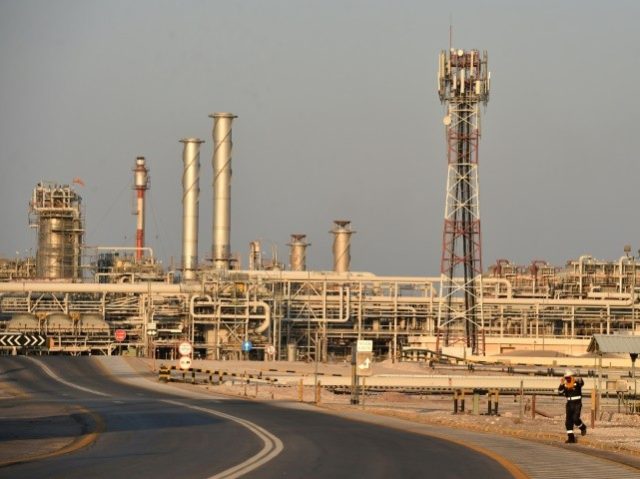Saudi Arabia is evidently very serious about the oil price war it launched this week, signaling that its national oil company Saudi Aramco will hit a record high production level of 12.3 million barrels per day in April.
“The company expects that this will have a positive, long-term financial effect,” Aramco said in a statement to the Saudi stock market on Tuesday.
The Russians would probably disagree, but Aramco shares went up 9.88 percent on Tuesday, recovering from a slump of nearly 10 percent before the announcement and a brief trading freeze. Investors were evidently looking for reassurance that Aramco, which went public in December, is committed to seeing the oil war through.
Russia, the primary target of the Saudi oil bomb, claimed it would remain “competitive” even though it cannot hope to match the Saudi production surge. Russian Energy Minister Alexander Novak suggested Russia could surge to 300,000 barrels per day in the short term and possibly reach 500,000 with sustained effort.
The New York Times noted Tuesday that Russian state media is already blaming Saudi Arabia for crashing Russia’s currency. The April production surge is an explicit effort to steal Russia’s European oil customers.
On the bright side (for some Russian political leaders and oligarchs, anyway) the Saudi oil war marks the end of OPEC collusion to keep production down so prices will stay higher, an effort some in Moscow never wanted to participate in. These skeptics argued that keeping OPEC production down merely allowed an upstart new provider to step in and grab market share – namely the blossoming American oil industry.
Any pleasure the Russian oil nationalists might feel at vindication from Saudi Arabia’s aggressive production moves should evaporate quickly with the realization that American companies are better positioned to trim their sails and weather the storm of low prices than Russia’s Rosneft company, despite Russian state media claims to the contrary.
What happens when Russia’s production surge combines with the Saudi surge into a tidal wave of oil that crashes upon the rocks of reduced demand from the coronavirus remains to be seen. Analysts seem in agreement that Saudi Arabia’s move caught Russia by surprise, although Russia’s complaints about OPEC production caps (and its long habit of cheating on those caps) were a major reason the Saudis decided to pull the trigger.
CNN quoted analysts who chastised both Moscow and Riyadh for playing “Russian roulette” with the entire global economy, noting that other producers like the United Arab Emirates are ramping up in tandem with Saudi Arabia, creating downward pressure on demand and price that could prove ruinous for smaller oil economies like Iraq, Angola, Nigeria, and Algeria.
According to the Wall Street Journal, Russian energy minister Novak is already talking with his former Saudi counterpart Khalid al-Falih about canceling the production surges and restoring OPEC caps, which would make Tuesday’s announcements of eye-popping production surges something of a bluff. Falih is now Saudi Arabia’s minister of investments, but he was the prime negotiator for the OPEC production cuts as energy minister in 2016. Market prices are currently bouncing around as everyone tries to figure out if the April production increases will actually happen.
Part of that calculation involves determining how well the Saudi economy could weather the price war it started, and whether its near-absolute ruler, Crown Prince Mohammed bin Salman (MBS), has a realistic idea of how tightly the hatches can be battened down.
MBS became crown prince after developing elaborate plans to diversify the Saudi economy and move away from oil dependency, but those plans are a decade away from completion even by his optimistic initial timetable – his plan was called “Saudi Vision 2030” and its first major step, taking Aramco public, was taken scarcely three months ago.
One theory behind the oil war is that MBS is deliberately choking off some of the monarchy’s abundant cash flow to tighten his grip on power and shake up the indulgent and fractious royal family. Others think he wanted to weaken Russia or at least shake Russian President Vladimir Putin’s confidence, or decided he had to launch a preemptive strike before the Russians subverted or disregarded OPEC’s production caps. Some suspect MBS’ true objective is to shake up OPEC or force Russia out of its alliance with the cartel.
If the oil war is a bluff, it has been staged very convincingly: Saudi Arabia’s state shipping company has already hired a fleet of gigantic crude oil tankers to ship its increased output to customers in Asia and the United States.

COMMENTS
Please let us know if you're having issues with commenting.